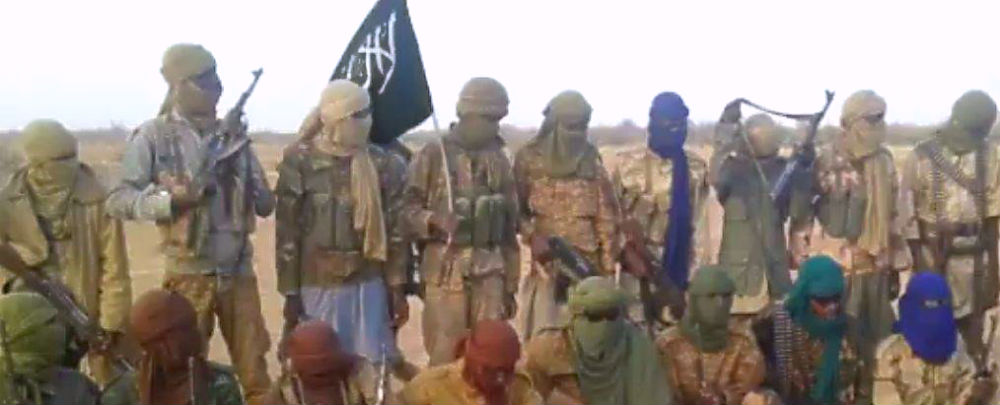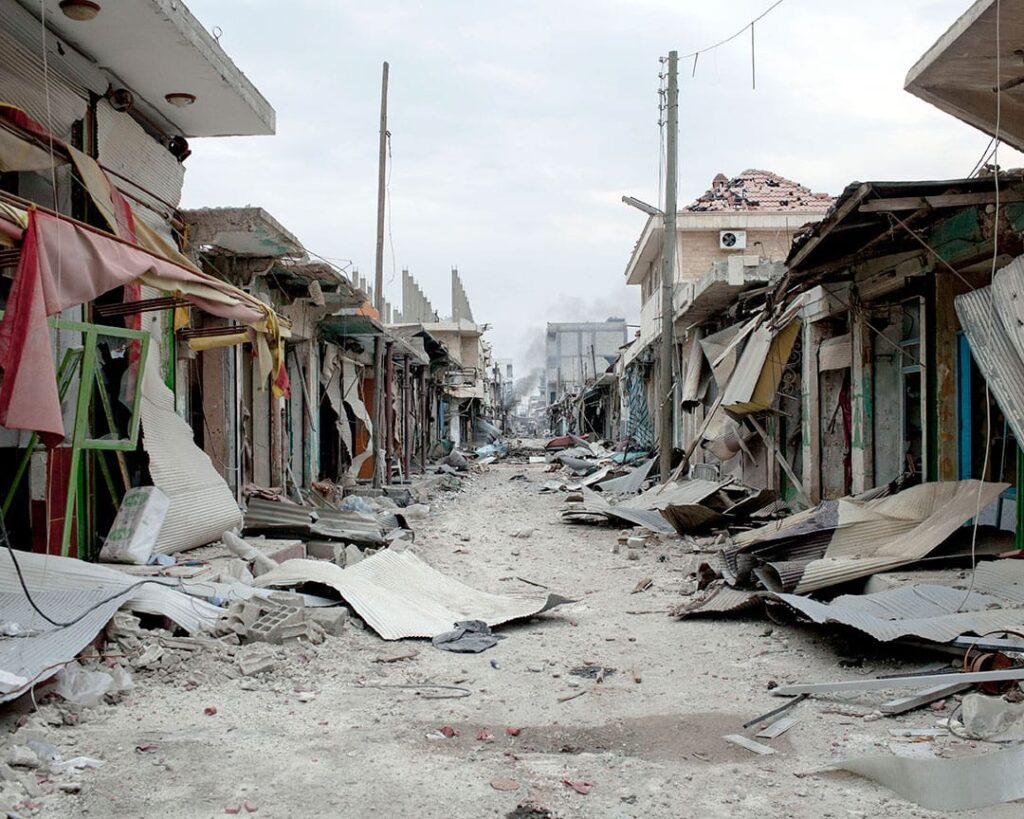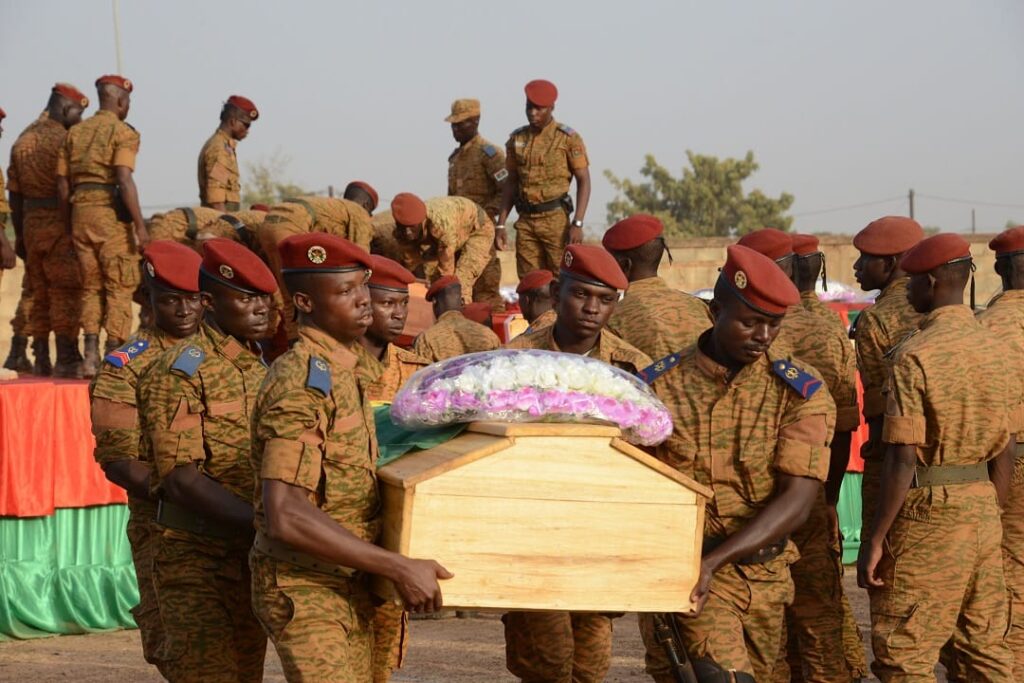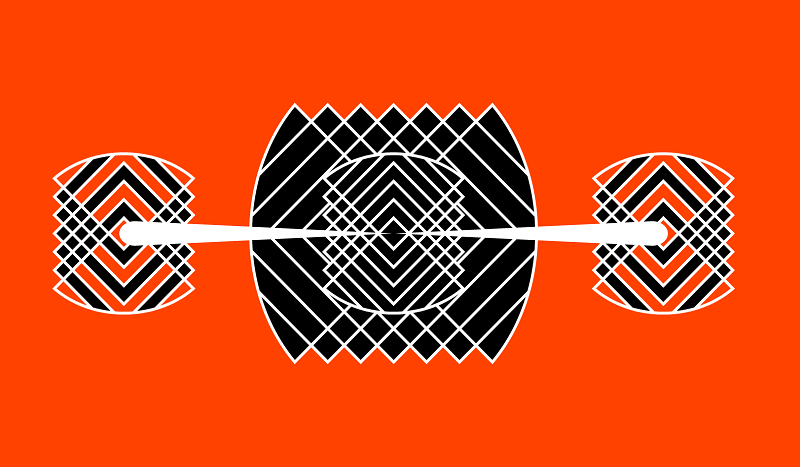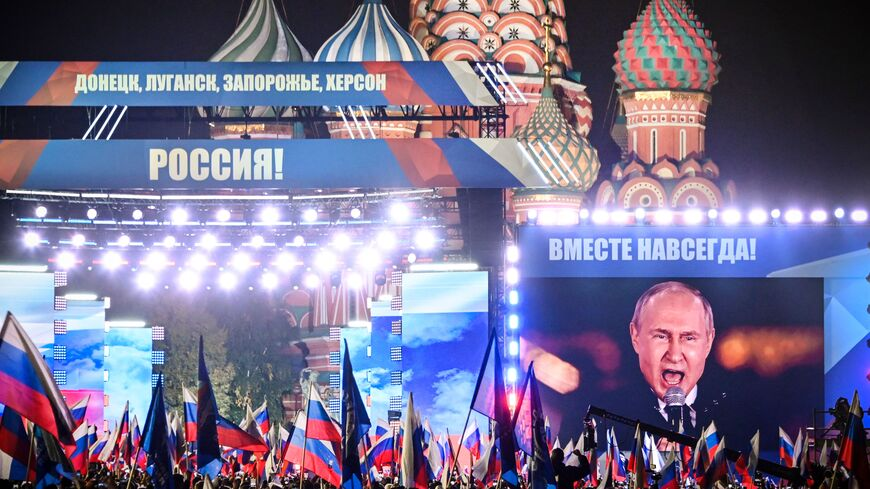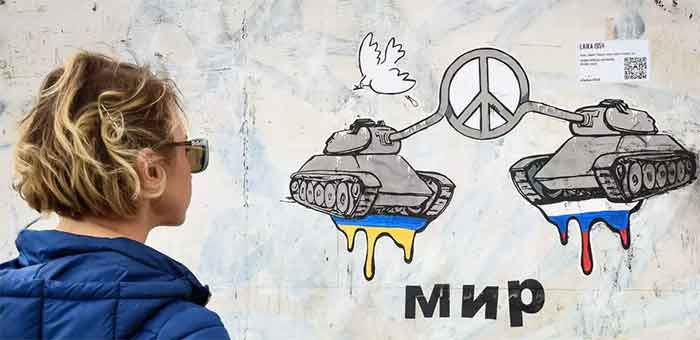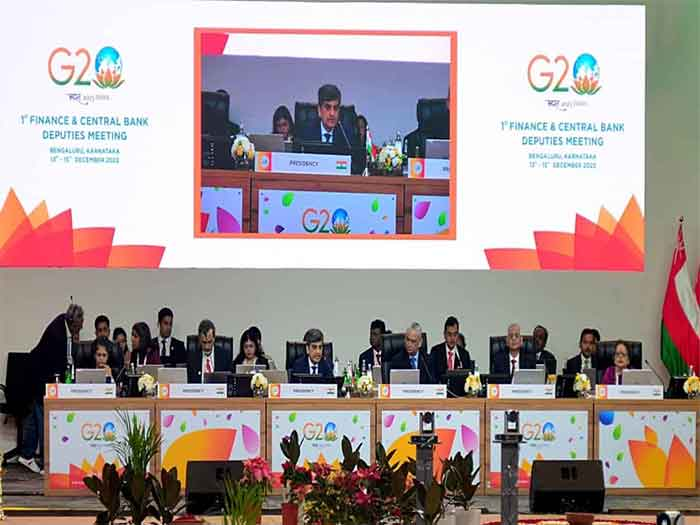Frontlines in Flux in Battle against African Militant Islamist Groups
A surge of attacks in the Sahel coupled with declines in activity by Boko Haram, ISIS, and al Shabaab reflect the constantly shifting threats posed by militant Islamist groups in Africa.
A time-lapse review of violent episodes involving militant Islamist groups over the past decade underscores the shifting nature of Islamist militancy in Africa. Key highlights include:
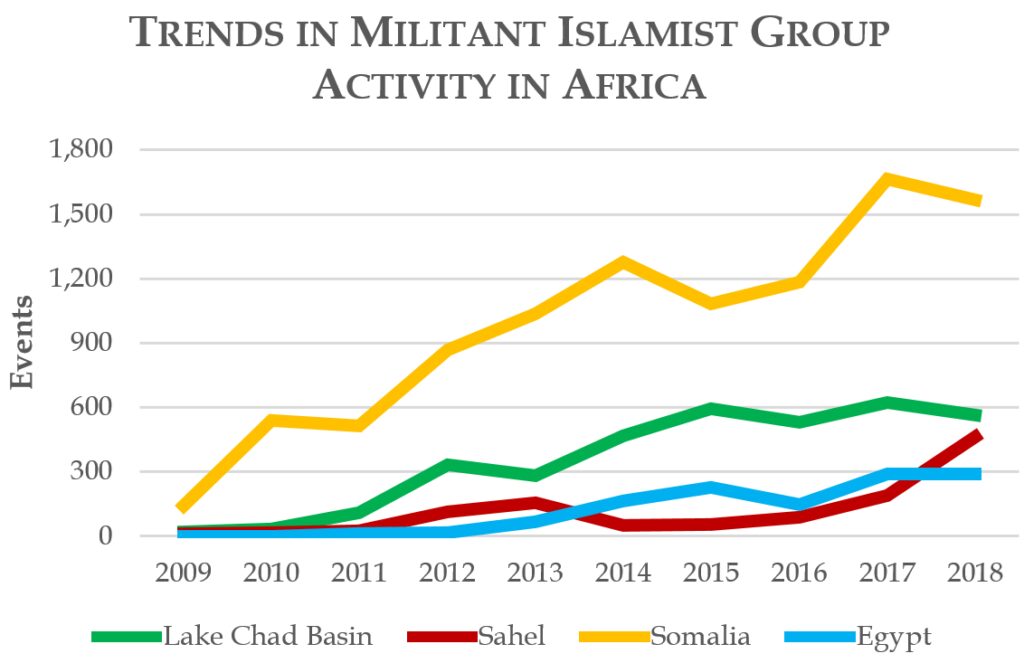
- Militant Islamist groups in Africa have engaged in 3,050 violent events in 2018—a record level of activity. However, this figure is only slightly higher than that seen in 2017 (2,927 events), reflecting a plateauing of what had been a steadily upward trend.
- Overall, militant Islamist group activity in Africa has doubled since 2012 when there were 1,402 events linked to these groups. Over the past 10 years, there has been a ten-fold increase in violent events (from 288 in 2009 to 3,050 in 2018).
- Militant Islamist group activity in Africa continues to remain primarily concentrated in four theaters: Somalia, the Lake Chad Basin, the Sahel (Central Mali and border areas), and Egypt. Within each of these theaters, however, the geographic range of violent activities has become more dispersed in recent years.
- Violent episodes involving al Shabaab represent roughly 50 percent of all militant Islamist group activity in Africa. This rate has remained consistent over the past decade.
- Events involving three of the most active groups (al Shabaab, Boko Haram, and the Islamic State [ISIS]) saw declines in 2018 from the previous year (by 7 percent, 23 percent, and 31 percent, respectively, with the figure for ISIS since 2016).
- Meanwhile, militant groups in the Sahel have grown more active. Events linked to militant Islamist activity, including al Qaeda in the Islamic Maghreb (AQIM) affiliates and Islamic State in the Greater Sahara (ISGS), collectively tripled in 2018, to 464 violent episodes from 192 the year prior.
- Despite the persistent level of activity, fatalities linked to militant Islamist groups in Africa have continued to decline steadily from a peak in 2015 (9,744 versus 18,856 fatalities). Much of this decrease is attributed to the drop in fatalities tied to Boko Haram. However, both al Shabaab (15 percent) and ISIS (20 percent) also saw declines in associated fatalities in 2018.
- Fatalities collectively linked to militant Islamist groups in the Sahel, in the meantime, doubled from 529 in 2017 to 1,112 in 2018. Likewise, the Boko Haram off-shoot, the Islamic State of West Africa (ISWA), also saw a near doubling in associated fatalities in the same time frame (520 to 960). Nonetheless, given the declines linked to Boko Haram, the trend in the Lake Chad region continues downward, with a 15-percent decrease in 2018.
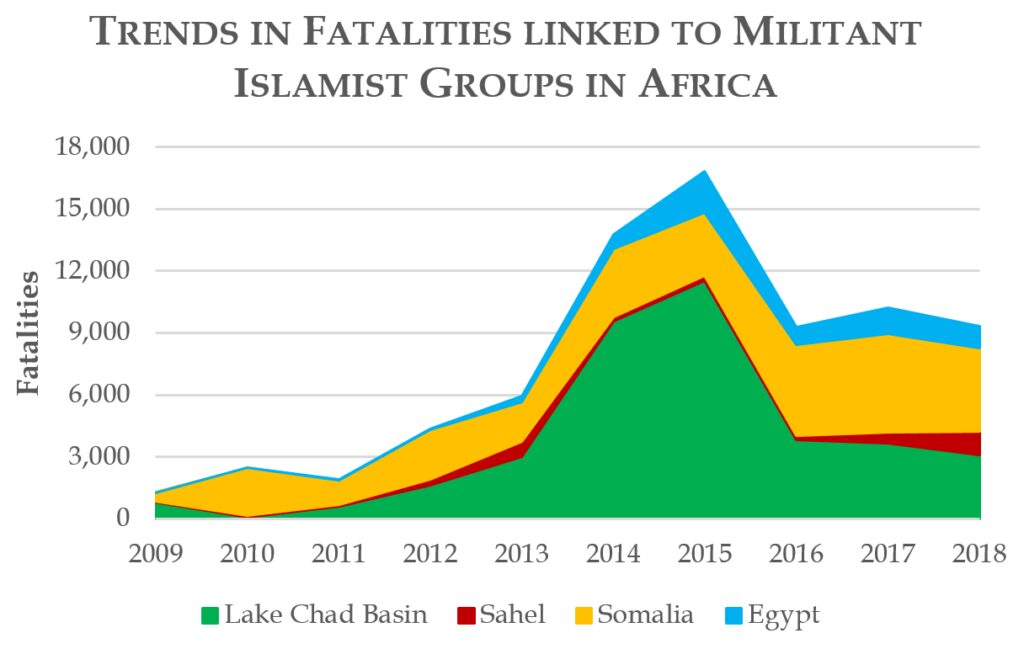
- Reported attacks against civilians have grown as a share of overall militant group activity in Africa since 2010. In 2018, violent events against civilians represented 21 percent of all militant Islamist group activity in Africa. This compares to 17 percent in 2015 and 8 percent in 2010. Boko Haram has inflicted the most civilian fatalities over the decade: 11,403 fatalities from 1,107 attacks. In 2018, violent attacks against civilians comprised roughly a third of events involving Boko Haram. This is consistent with rates of attacks against civilians seen by the most active militant groups in the Sahel—ISGS and the Macina Liberation Front (FLM).
- While not as active, relatively newer groups—such as Ansaroul Islam in Burkina Faso and a group alternatively referred to as “al Shabaab” and Ahlu Sunnah Wa Jamâ (ASWJ) in Mozambique—were involved in a significantly higher rate of attacks against civilians, 55 and 77 percent respectively, relative to the total number of events to which they were linked in 2018. Though al Shabaab in Somalia has been responsible for the most reported attacks against civilians this decade (1,233 causing 2,058 fatalities), its use of that tactic in 2018 represented 13 percent of total events in which it was involved.
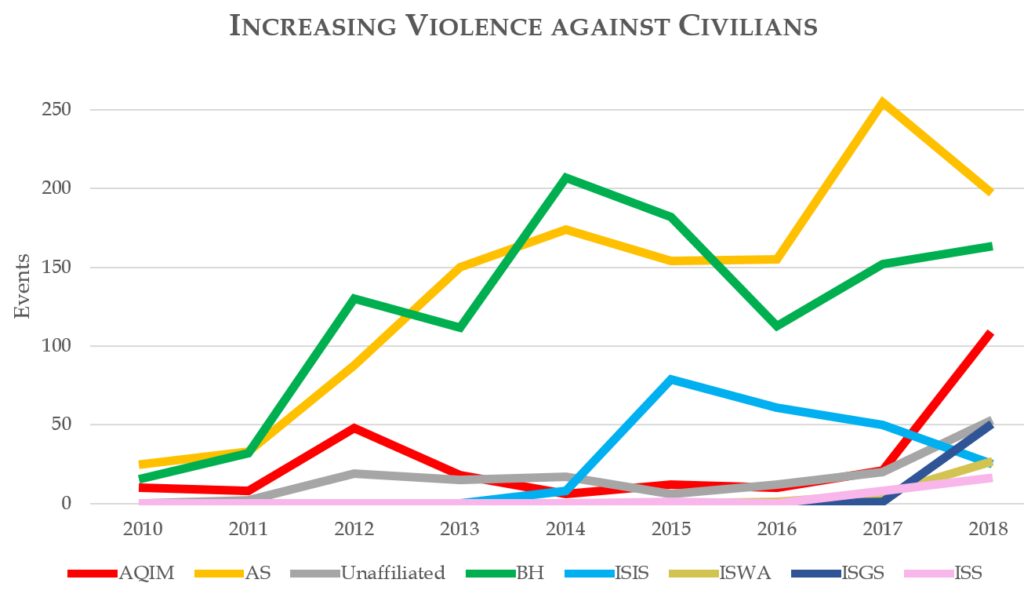
- Reflecting the growing fragmentation of the militant Islamist group threat, 13 African countries now face regular attacks from these groups (up from 5 in 2010). Furthermore, there are now roughly two dozen active militant Islamist groups versus five in 2010.

